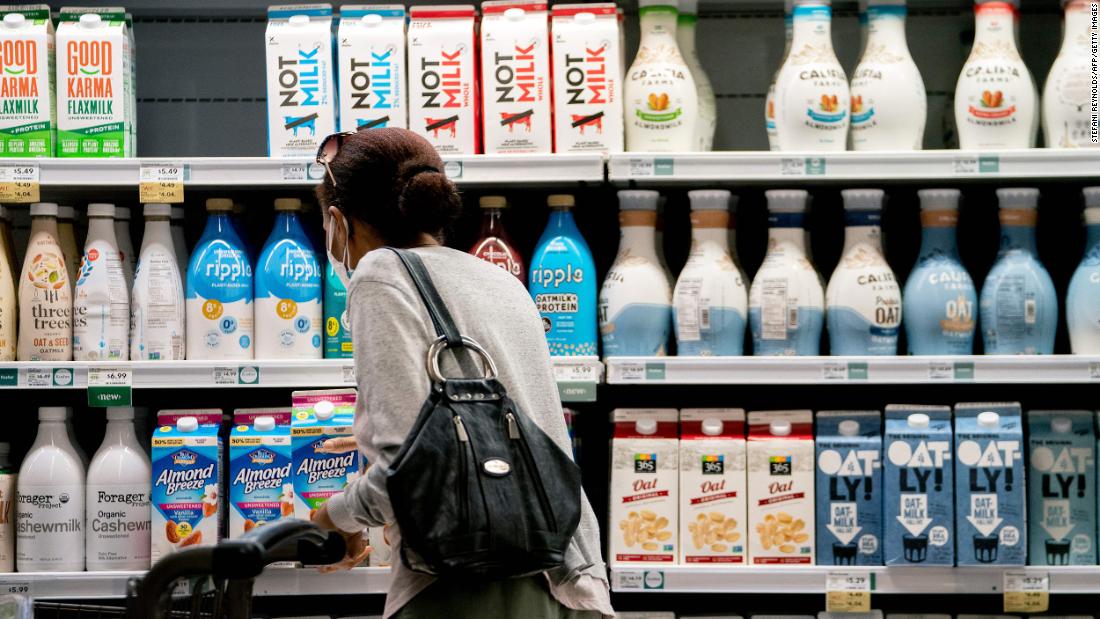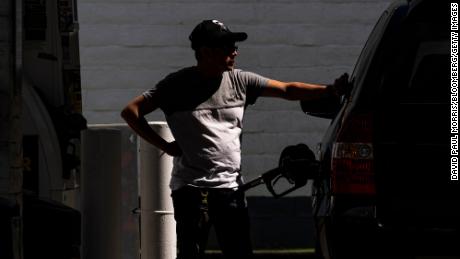
“I’m just worried about quality of life,” said Johnson, 33. “You already have nerves about being a new parent. And then you have the whole economic downturn possibly coming and it can create some anxiety.”
Like many Many Black families, Johnson and her husband are bearing the brunt of inflation — with prices rising to the highest rates the US has seen in more than 40 years. Researchers say Black families will suffer the worst effects of rising inflation because they lag behind their White counterparts in income, wealth, financial savings and home ownership.
The disparity leaves many Black Americans without the funds to help offset the rising consumer prices and puts greater pressure on their monthly income, economists say. Some economists fear that if lawmakers don’t act soon to combat inflation, Black families may be forced to go without necessities as the threat of another recession looms.
“It’s going to be extremely devastating,” said William Darity Jr., professor of public policy, African American studies and economics at Duke University. “People will have to make very, very hard decisions about whether or not to purchase medicines or buy food or forgo payment of their utilities. It will have harsh effects on people’s well-being.”
Darity said the nation’s wealth gap has made is difficult for Black families to maintain financial savings or transfer wealth through generations like many White families have been able to do. He said racist policies such as redlining and depriving former slaves of land promised to them have historically set Black Americans behind.
“The problem is Republicans in Congress are doing everything they can to stop my plans to bring down costs on ordinary families. That’s why my plan is not finished and why the results aren’t finished either,” Biden said earlier this month.
A disproportionate impact on Black families
Some research suggests that Black households are more susceptible to inflation changes than White households.
Munseob Lee, an economist at the University of California-San Diego who co-wrote the study, said many Black Americans are also living in food deserts and paying higher prices for groceries at convenience stores. Inflation only increases the price on those convenience store products, Lee said. It also forces Black shoppers to have to travel father for groceries meaning they are subject to the higher gas prices, he said.
“If prices paid by White households increase by 7% over a year, our calculations suggest that one may expect them to increase by 7.5% for Black households,” the study notes as an example.
Johnson, the Atlanta mom, noted that if Americans don’t get a raise at their job, the rate of inflation will equate to a pay cut.
“I think a lot about money and I think a lot about finances and I wonder are our salaries going to start to match (the rate of inflation),” Johnson said.
‘It costs more to be poor’
Some non-profit organizations are stepping in to help families put food on the table as inflation continues.
Omilami said she is also overwhelmed with requests from people who need assistance paying their rent. Many families, she said, are struggling with inflation because someone in the household lost their job during the pandemic or they are senior citizens on a fixed income. Other families say their food stamps are not enough to cover the rising cost of food, Omilami said.
One suburban Atlanta mom said she has had to make major adjustments to where she shops for groceries and what her family eats.
Crystal Smith, a single mom of four, said she now spends more time comparing prices at different stores to see how she can save money. During a recent week, she decided to cook chicken over a seafood boil for her family because it was the more affordable meal.
“It’s one of those things that definitely has you sitting back wondering how you can cut costs,” Smith said. “We are really in such a rough time and we have to start making difficult decisions, especially in the African American community.”
